Septoplasty in Belgium
Find the best clinics for Septoplasty in Belgium
No pricing info available
Romania offers the best prices Worldwide
Price: $ 404
From 103 verified reviews
alain touillet, 19 September 2020
perfect alleen beter de afspraken respecteren worden heel vaak verlegt
From 103 verified reviews
Adam Soverg, 16 September 2020
Медevery medical worker with whom I happened to be a patient in this hospital is a professional in his field.
From 44 verified reviews
dora de Wilde, 21 March 2020
Optimal care, located in an oasis of green. You will relax there, even when you are sick ...
From 42 verified reviews
Mark Henderickx, 04 April 2020
After a fall with a bicycle on a fast, friendly, adequate help.Top team, tnx Marcus Henderickx
Antwerp Hospital Network ZNA, located in Lindendreef, Antwerp, Belgium offers patients Septoplasty procedures among its total of 217 available procedures, across 23 different specialties. Currently, there's no pricing information for Septoplasty procedures at Antwerp Hospital Network ZNA, as all prices are available on request only. There is currently a lack of information available on the specialists practicing at the Hospital, and they are not accredited by any recognized accreditations institutes
Compare Before & After Photos of _procedure_photos.phpSeptoplasty
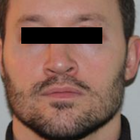
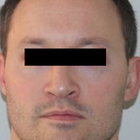
Front view
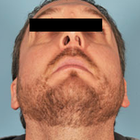
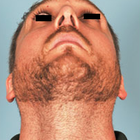
Front view
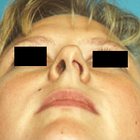
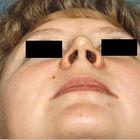
Front view
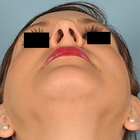
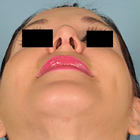
Front view
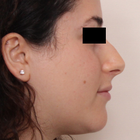
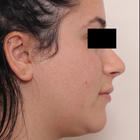
Full-side view
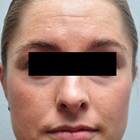
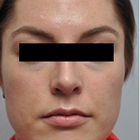
Front view
WHY US?
At Medijump, we're making medical easy. You can search, compare, discuss, and book your medical all in one place. We open the door to the best medical providers worldwide, saving you time and energy along the way, and it's all for FREE, no hidden fees, and no price markups guaranteed. So what are you waiting for?

Free

Best Price

Widest Selection

Risk-Free
What you need to know about Septoplasty in Belgium
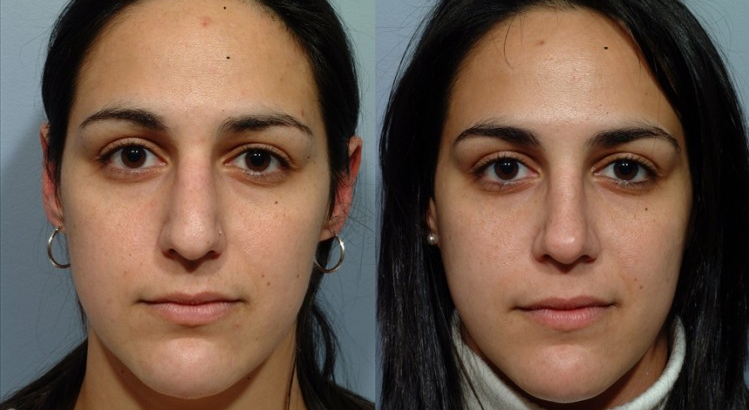
A septum is a bone and cartilage that separates the nasal cavity of the nose. When your nasal septum is off-center, crooked, or moved to one side of your nose, it is a condition known as a deviated septum and can make breathing difficult. To correct this condition, you may need to undergo Septoplasty, where your septum will be straightened to allow better airflow through your nose. This surgery is the only way to fix a deviated septum. However, septoplasty may also be performed to treat long-term sinusitis, remove nasal polyps, or treat other conditions that block the nasal airways. Sometimes, surgeons also recommend this surgery to stop recurrent nosebleeds and facial pains. For conditions other than deviated septum, surgeons often only recommend septoplasty after ruling out other treatments.
What does a Septoplasty Procedure Involve?
A deviated septum is common, but when the condition is severe, it can block one side of your nose and reduce airflow. It can also contribute to crusting or bleeding. If you experience difficulty breathing through your nose that significantly affects your life, you may want to consider septoplasty. Before the surgery, your doctor will review the details of the surgery and ask you to complete some routine tests, such as a blood test, electrical heart tracing, or X-ray. Be sure to tell your doctor if you have any possible allergies. To prepare for the procedure, you may need to stop taking certain medications at least two weeks before the surgery because they can increase your risk of excessive bleeding and the medications include aspirin, ibuprofen, and other blood-thinners.
Septoplasty can be carried out under local anesthesia or general anesthesia. If you have the surgery under local anesthesia, you should not eat or drink anything after midnight the night before the procedure. Not eating and drinking will prevent you from vomiting and choking if the anesthesia nauseates you during surgery. Your surgeon will start the surgery by making an incision on one side of your nose to access the septum. They will then lift the mucosa lining that covers the cartilage and bone. Next, they will reshape the cartilage and bone to move the deviated septum to the correct position. Extra pieces of bone or cartilage that make barriers will be removed. Then, they will reposition the mucous membrane. You may need stitches to hold the septum and membrane in place. Soft silicone splints are sometimes inserted inside the nostrils to support the septum. The whole procedure takes between 30 to 90 minutes to complete.
How Long Should I Stay in Belgium for a Septoplasty Procedure?
Septoplasty is an outpatient procedure, which means you will likely go home on the same day of the surgery after the anesthesia has worn off unless major complications arise. However, you should stay in the Belgium for 3-4 days for the initial recovery and follow-up checkups. If your surgeon places splints in the nose, they will be removed within seven days. You may return home when your surgeon allows you as long as there is no complication.
What's the Recovery Time for Septoplasty Procedures in Belgium?
You may feel drowsy for a few hours following the surgery and you may also feel pain. However, your surgeon will prescribe medication to help with the pain. Some congestion and bleeding can occur after you are discharged from the hospital as your body recovers, but these symptoms should be gone in 2 weeks. The recovery period varies from one person to another. In general, you should be able to return to work within a few days, but you should allow at least three weeks before going back to your full normal routine. You should also limit your physical activities such as exercise for several weeks to minimize swelling and speed up healing because intense physical activities can increase your blood pressure and lead to bleeding.
What sort of Aftercare is Required for Septoplasty Procedures in Belgium?
Your doctor will give you post-operative care instructions, which you will need to follow, The wound on your nose will heal fairly quickly, and your breathing will improve shortly after the procedure. For a quicker recovery, you may need to elevate your head at night to keep the swelling down, wear a button-up shirt so you do not need to pull clothing over your head, and do not blow your nose for at least two to three days after surgery. Avoid drinking alcohol, smoking tobacco, returning to work too soon, strenuous activities, and being in a crowd where people are smoking or coughing.
What's the Success Rate of Septoplasty Procedures in Belgium?
The success rate for septoplasty is high, with up to 85% of people experiencing a significant improvement in their nasal blockage after surgery.
However, some people will require a second surgery if they are not satisfied with the results. Septoplasty is a very low-risk procedure, but you should be aware of the possible complications and side effects and these risks can include:
- Bleeding in small amounts is common, but in rare cases, excessive bleeding may occur.
- Infection can occur after septoplasty because the nose is not a sterile environment.
- Toxic shock syndrome is a very rare and life-threatening infection.
- Septal perforation is a small hole that can sometimes develop in the nasal septum during or after the surgery.
- Spinal fluid leak and it is extremely rare.
Other risks such as scarring, and altered nose shape, discoloration of the nose, a decreased sense of smell, tooth or nose numbness, and continuing symptoms are also possible. Other than following your surgeon’s aftercare instructions, keeping the nose clean and washing your hands often can reduce the risks.
Are there Alternatives to Septoplasty Procedures in Belgium?
Although most conditions of a deviated septum can only be treated by septoplasty, there are nonsurgical treatments for other nasal blockages to help you breathe better. If your nasal blockage is caused by an allergy, you may take antihistamines from your doctor or over-the-counter. In cases of bacterial infection, your doctor can prescribe antibiotics to help clear the nasal airways.
Whilst the information presented here has been accurately sourced and verified by a medical professional for its accuracy, it is still advised to consult with your doctor before pursuing a medical treatment at one of the listed medical providers
No Time?
Tell us what you're looking for and we'll reachout to the top clinics all at once
Enquire Now

Popular Procedures in Belgium
Prices Start From $1,945

Prices Start From $101

Prices Start From $192

Prices Start From $500

Recommended Medical Centers in Belgium for Septoplasty

- Interpreter services
- Translation service
- Religious facilities
- Medical records transfer
- Medical travel insurance
- Health insurance coordination
- TV in the room
- Safe in the room
- Phone in the room
- Private rooms for patients available

- Interpreter services
- Translation service
- Religious facilities
- Medical records transfer
- Medical travel insurance
- Health insurance coordination
- TV in the room
- Safe in the room
- Phone in the room
- Private rooms for patients available

- Interpreter services
- Translation service
- Religious facilities
- Medical records transfer
- Medical travel insurance
- Health insurance coordination
- TV in the room
- Safe in the room
- Phone in the room
- Private rooms for patients available

- Interpreter services
- Translation service
- Religious facilities
- Medical records transfer
- Medical travel insurance
- Health insurance coordination
- TV in the room
- Safe in the room
- Phone in the room
- Private rooms for patients available

- Interpreter services
- Translation service
- Religious facilities
- Medical records transfer
- Medical travel insurance
- Health insurance coordination
- TV in the room
- Safe in the room
- Phone in the room
- Private rooms for patients available

- Interpreter services
- Translation service
- Religious facilities
- Medical records transfer
- Medical travel insurance
- Health insurance coordination
- TV in the room
- Safe in the room
- Phone in the room
- Private rooms for patients available

- Interpreter services
- Translation service
- Religious facilities
- Medical records transfer
- Medical travel insurance
- Health insurance coordination
- TV in the room
- Safe in the room
- Phone in the room
- Private rooms for patients available





